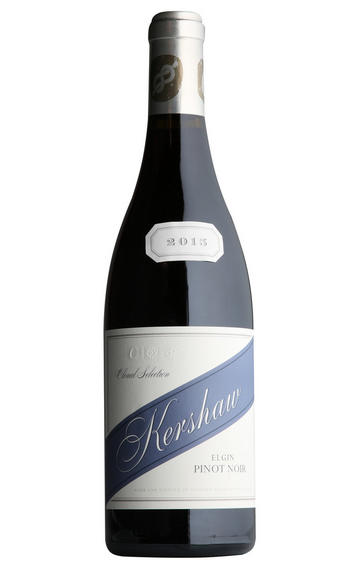
2017 Richard Kershaw, Clonal Selection Pinot Noir, Elgin, South Africa
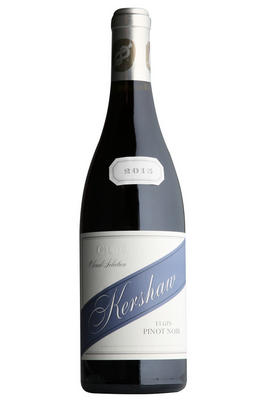
About this WINE
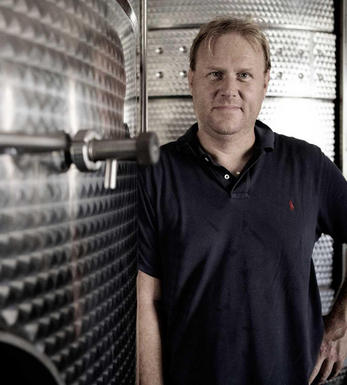
Richard Kershaw Wines
Born and raised in the UK, Richard Kershaw enjoyed a successful career as a chef before discovering wine. After travelling extensively, he arrived in South Africa in 1999 and, by 2009, was Group Winemaker of Mulderbosch and Kanu. Richard became a Master of Wine in 2011 and established Richard Kershaw Wines in January 2012.
He is now pursuing his dream of making his own wine in the cool climate of Elgin, in the Overberg wine region of the Western Cape. His intention is to create site-specific, cool-climate wines from high-quality French clones of the Chardonnay and Syrah grapes. His site, in one of South Africa’s coolest wine districts, Elgin, benefits from higher altitude, proximity to the ocean, specific cloud cover sequencing and large differences in day and night temperatures, all of which allow his Chardonnay and Syrah to show a true sense of place. The climate leans toward Southern Burgundy and the Northern Rhône, affording Richard’s wines a surprisingly Old World feel.
They are extremely impressive, a fact recognised by John Platter, who awarded the first vintage of his Chardonnay (2012) a straight 5/5 stars, a feat that was repeated with the ‘13 Chardonnay. This is a small operation, however, and volumes are limited.
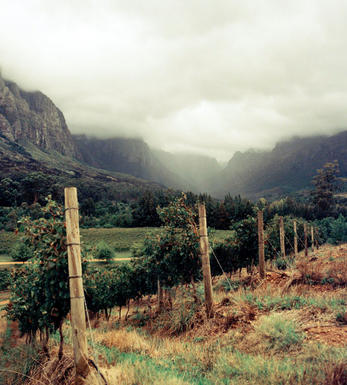
Elgin
This cool lush corner of the Western Cape is east of Stellenbosch. Historically Elgin has been better known for its apple orchards, but is fast proving its potential for wine, with elegant examples of Chardonnay, Pinot Noir, Sauvignon Blanc and even Syrah.
Circled by mountains, the cool-climate ward sits within the Overberg region. Aromatic grape varieties thrive in Elgin’s slow-ripening conditions, with Chardonnay, Sauvignon Blanc, Riesling, Pinot Noir and even Syrah showing promise.
Recommended producers: Richard Kershaw MW
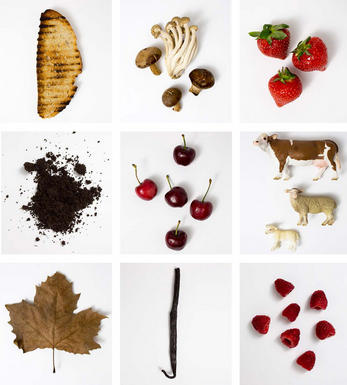
Pinot Noir
Pinot Noir is probably the most frustrating, and at times infuriating, wine grape in the world. However when it is successful, it can produce some of the most sublime wines known to man. This thin-skinned grape which grows in small, tight bunches performs well on well-drained, deepish limestone based subsoils as are found on Burgundy's Côte d'Or.
Pinot Noir is more susceptible than other varieties to over cropping - concentration and varietal character disappear rapidly if yields are excessive and yields as little as 25hl/ha are the norm for some climats of the Côte d`Or.
Because of the thinness of the skins, Pinot Noir wines are lighter in colour, body and tannins. However the best wines have grip, complexity and an intensity of fruit seldom found in wine from other grapes. Young Pinot Noir can smell almost sweet, redolent with freshly crushed raspberries, cherries and redcurrants. When mature, the best wines develop a sensuous, silky mouth feel with the fruit flavours deepening and gamey "sous-bois" nuances emerging.
The best examples are still found in Burgundy, although Pinot Noir`s key role in Champagne should not be forgotten. It is grown throughout the world with notable success in the Carneros and Russian River Valley districts of California, and the Martinborough and Central Otago regions of New Zealand.


Buying options
Add to wishlist
wine at a glance
Delivery and quality guarantee